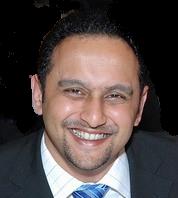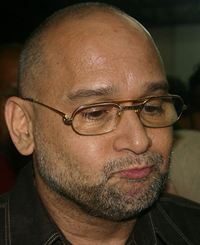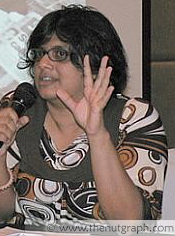By Deborah Loh | 17 August 2010 | The Nut Graph

PETALING JAYA, 17 Aug 2010: A new non-governmental organisation, the South East Asia Media Legal Defence Network (SEAMLDN), is all set to provide journalists in the region with legal protection.
SEAMLDN, which was soft-launched in Kuala Lumpur on 23 July 2010, will provide legal assistance, including payment of legal fees, to journalists and media organisations.
It will also provide support for lawyers who take up freedom of expression cases, SEAMLDN Malaysia project coordinator and lawyer HR Dipendra said.
Already, SEAMLDN is assisting cartoonist Zunar and his publisher, news portal Malaysiakini, in challenging the Home Ministry‘s ban of his books, 1Funny Malaysia and Perak Darul Kartun.
Dipendra said the network was focusing on smaller news organisations and independent journalists, most of whom publish online and have fewer resources compared with established traditional media players to defend themselves in lawsuits.
SEAMLDN believes that not only are journalists increasingly in need of protection, so, too, are bloggers if freedom of expression is to be upheld.
“The concept of media is ever expanding and includes social media like blogs, websites and podcasts. There is a compelling need to broaden the concept of journalists to include the various players who shape the media industry,” Dipendra told The Nut Graph.
“The only way forward in protection of media freedom is to expand and enlarge the concept of journalists. [We use the term] in a generic sense [to] encompass anyone who disseminates information to the public at large, for a public good.”

Dipendra (Courtesy of SEAMLDN)
Most journalists from the traditional media would disagree that bloggers are journalists. But according to the Committee to Protect Journalists (CPJ), as of December 2009, 45% of all journalists jailed worldwide were freelancers, many of whom published independently on the web.
The CPJ reports that there were 68 bloggers, web-based reporters, and online editors in prison in 2009. Print journalists, including editors and photographers, came in second.
State control of media expansion
In tandem with media expansion, Dipendra said state authorities may seek to control and manage the press and new media either by using more force, or by retaining outdated and oppressive laws.
He noted that there weren’t many new models of laws that regulate internet content to follow. “There isn’t a clear understanding as to how the new media work, at least from the government’s point of view. Ever so often, the new media are seen as anti-government,” he said.
Indeed, the state doesn’t just target writers or reporters in Malaysia. Six people who posted comments on blogs on the Perak crisis were charged with insulting royalty under the Penal Code and the Communications and Multimedia Act 1998 for “improper use of facilities or network service”.

Raja Petra (Pic by Johnleemk | Wiki commons)
Another media-restrictive law that was recently invoked was the Securities Commission Act (SCA) 1993. The Centre for Independent Journalism (CIJ) considers it an impediment to media freedom because it compels a person being questioned by the commission to answer all questions, or be liable to a fine of RM1 million or jail, or both.
Suing for defamation
In Malaysia, apart from the use of laws like the Sedition Act and the PPPA, there appears to have been a flurry of defamation suits or intentions to sue the media since the 2008 general election.
A number of these suits have been filed by politicians, many of whom are from the opposition. Penang Chief Minister Lim Guan Eng sued Utusan Malaysia in February 2009 for defamation. He again plans to sue the Bahasa Malaysia daily for its reporting of his spat with the Penang state development officer. The DAP secretary-general last year also told all the party’s Members of Parliament to sue any media organisation that defames them.
Other opposition politicians who have filed suits include Teresa Kok. Yet others have announced their intentions to sue various media outlets, such PAS spiritual leader Datuk Seri Nik Abdul Aziz Nik Mat and Datuk Seri Nizar Jamaluddin.
However, CIJ notes that many of these cases have more to do with irresponsible reporting than censorship of freedom of expression. “More opposition politicians appear to be using the courts because they feel there is no other recourse. They say their attempts to engage the media to clarify their positions are not well-received,” CIJ Malaysia director V Gayathry told The Nut Graph by phone.
Apart from these, Malaysiakini is being sued by Sarawak Chief Minister Tan Sri Abdul Taib Mahmud for defamation.

Gayathry
Opposition media, too, are not entirely without fault. Felda has sued Suara Keadilan and Parti Keadilan Rakyat leaders for RM200 million for an article titled Felda Bangkrap, even though there is no evidence that the agency is bankrupt.
Dipendra holds that politicians, like any person, have the right to defend themselves and their reputations. However, suing the media must not be a means of muzzling journalism.
“Suing the press must be tempered with the press’ ability to continue writing. Sue if you wish, but do not let suing be a means of stopping further reporting,” he said.
He added that politicians should sue only as a last resort after exhausting other means of clarification.
It’s also incumbent on journalists to write based on verified facts, and as far as possible to use sources who can be named, Dipendra said.
Regional issue
It’s not just the media in Malaysia that need legal protection and would benefit from SEAMLDN. In the Philippines, 137 journalists have been murdered since 1986, according to the country’s National Union of Journalists. The killings continue.
In Singapore, British author Alan Shadrake is on trial for contempt and under investigation for criminal defamation for his book, Once a Jolly Hangman – Singapore Justice in the Dock, about the republic’s application of capital punishment.
Thailand has laws to punish writers or anyone from being critical of its monarchy, while Vietnam has jailed and harassed writers for writing about human rights and political issues in the country.
SEAMLDN was formed in Hong Kong in 2007 as an answer to litigation problems faced by journalists. It is affiliated to the Media Legal Defence Initiative, a London-based charity.

No comments:
Post a Comment